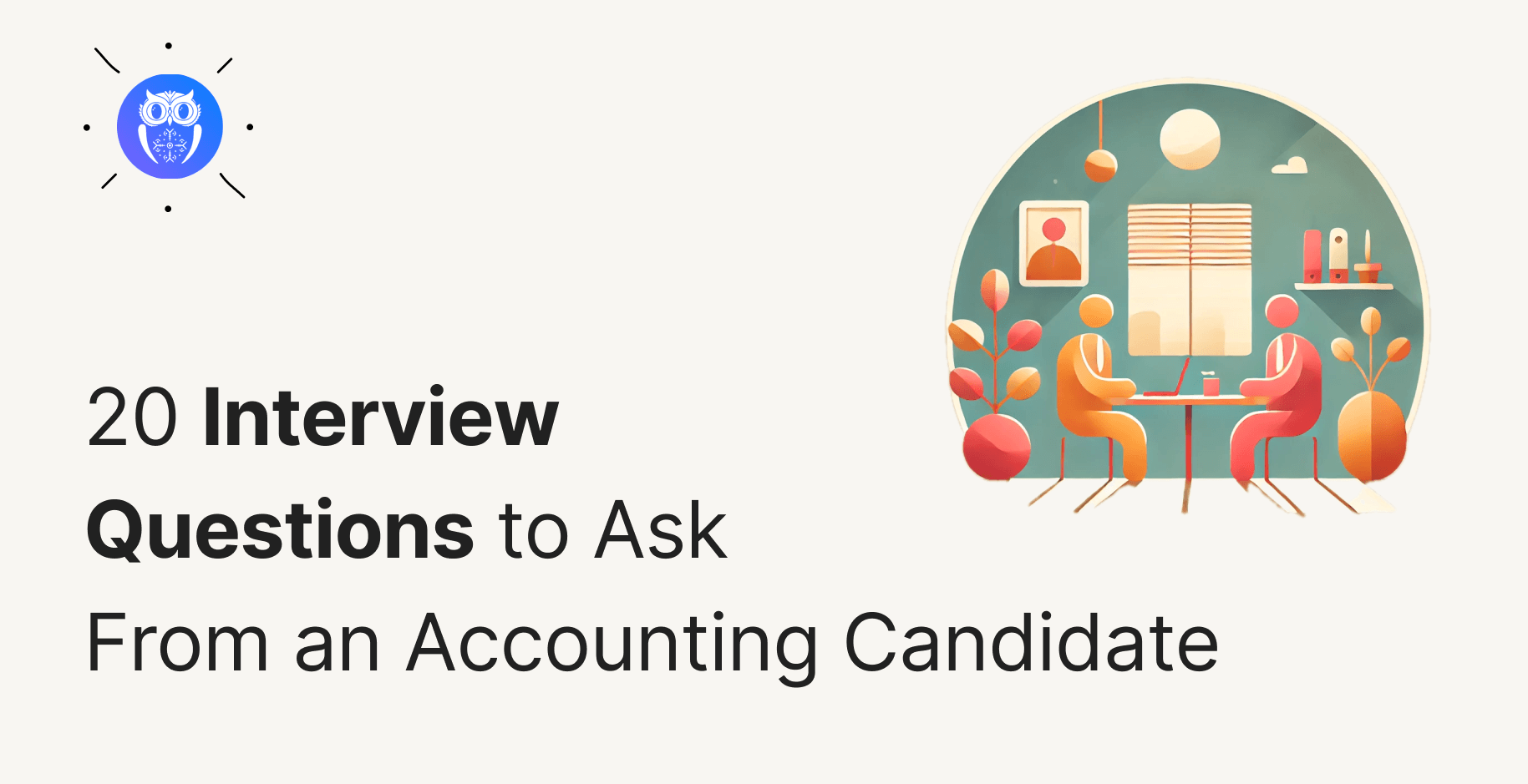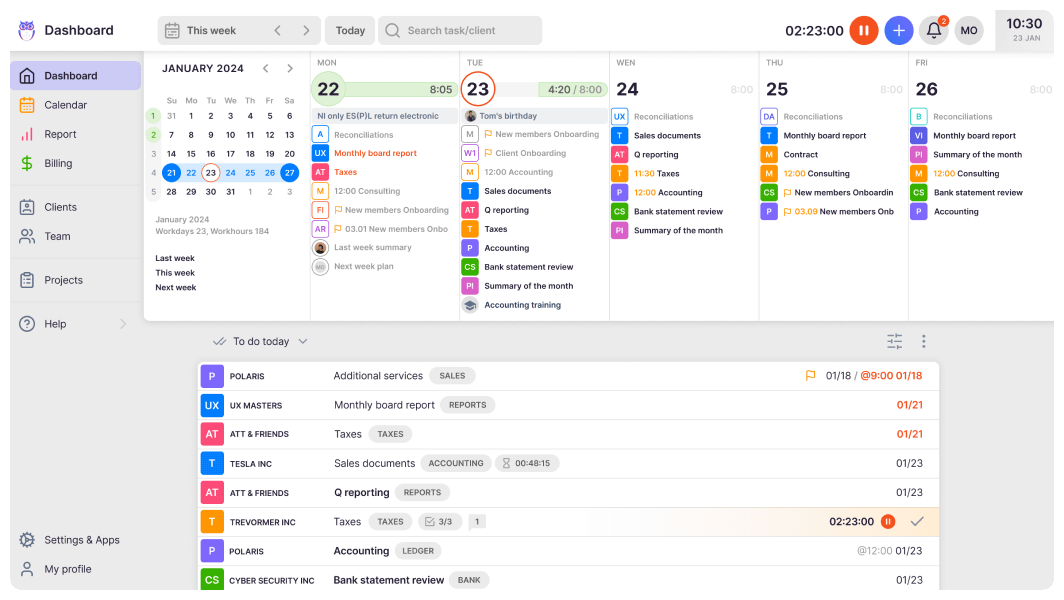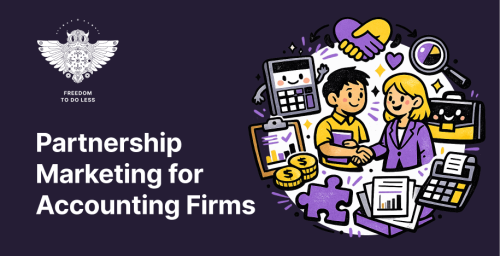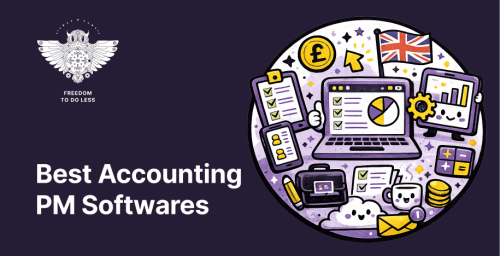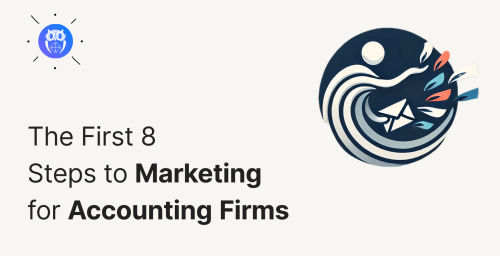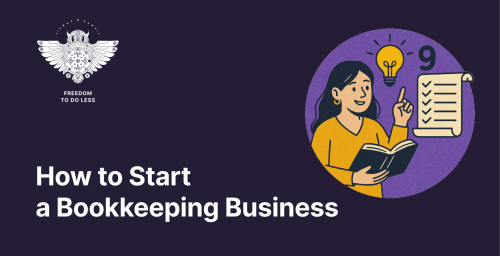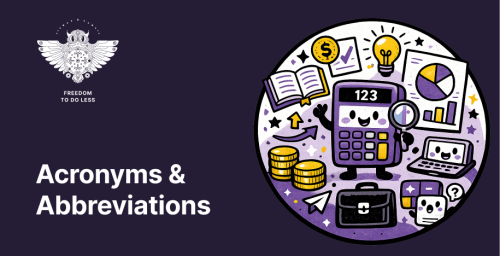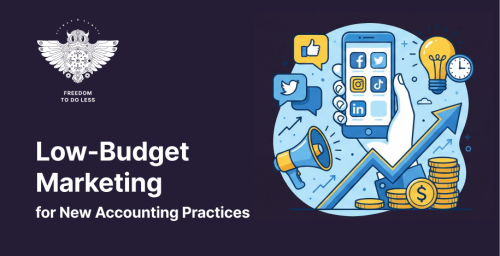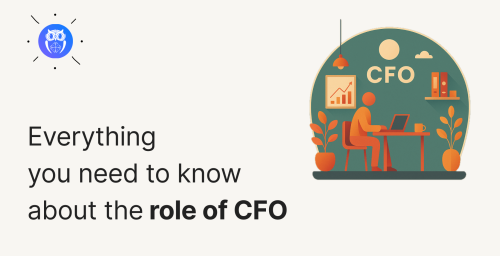You’re looking to hire a new accountant or just a staff member for your accounting firm but don’t know much about accounting or the job itself. So, how do you know which strategic interview questions to ask candidates?
You can’t decide based on the person; they need some accounting knowledge so your firm won’t shut down after a few weeks or get noted by the IRS.
But how do you know the potential accountant’s skills? I’m here to tell you how to hire your firm’s best accountant or staff member.
Here’s a list of the strategic interview questions which we’ll be talking about
- What accounting software or systems do you have experience with?
- How do you minimize your risk of accounting error?
- What criteria do you use to assess the reliability of the financial information you receive?
- What methods have you used for estimating bad debt?
- Please tell me about your experience in accounting and finance.
- What are the most common ways that fraud spreads in the accounting business?
- What’s the latest accounting standard, and how does it impact a business?
- What is your experience with developing or monitoring business metrics?
- Describe what role you usually play when working on a client with colleagues.
- What do you find hardest when working with a team?
- Tell me about a difficult client you’ve had in the past.
- What’s your way to find peace on a hectic day?
- Tell me about a situation where you solved a mistake you made.
- What is the most significant problem you have solved for a client?
- How do you stay up to date with changes in regulations?
- What are the first three steps you would take when discovering a critical error in a report just before a deadline?
- Describe a good day at work.
- Why did this position appeal to you?
- What would you do differently if you could start your career over again?
- Give me an example of how you would explain a complex accounting process to someone in another team.
What can happen if you hire the wrong accountant?
The results can be catastrophic for your firm. Your accountant handles sensitive information, so you must find the right person for the job.
Undiscovered financial errors
The role of an accountant in preventing financial errors is crucial to the success of your business. An incompetent accountant might make mistakes in financial reporting, leading to overpaying taxes or misrepresenting financial statements. Incorrect filings or missed deadlines can also result in penalties from tax authorities.
Financial errors can result in financial losses, as they may go unnoticed until they escalate.
Operations become a nightmare
On the other hand, hiring the right accountant can free up valuable time for business owners, allowing them to focus on growing the firm.
If the stress and fallout from financial mismanagement lead to cutbacks, it affects team morale and trust in leadership.
Hiring the wrong accountant can lead to a cascade of problems that affect not only the financial health of the business but also its legal standing and operational efficiency. It is crucial for business owners to thoroughly vet potential accountants to ensure they have the necessary expertise and reliability.
What type of strategic questions should you ask candidates?
First, you should always get to know your candidate. Ask them about their hobbies, what they like to do, where they studied, and how they learned. For example, if they’re learning Chinese or pursuing any new skill, ask what motivated them to start. Make them tell more about themselves in a casual setting and introduce yourself as a person, not as a manager, leader, or someone they should be afraid of. Create a comfortable scene where the interviewee feels it’s their time to shine.
It would be best not to forget that you, as an employer, must also leave a good impression. Imagine finding the best candidate and turning the job down because you left a wrong impression.
The strategic questions to ask candidates should reveal their skills, experience, organizational fit, stress tolerance, etc.
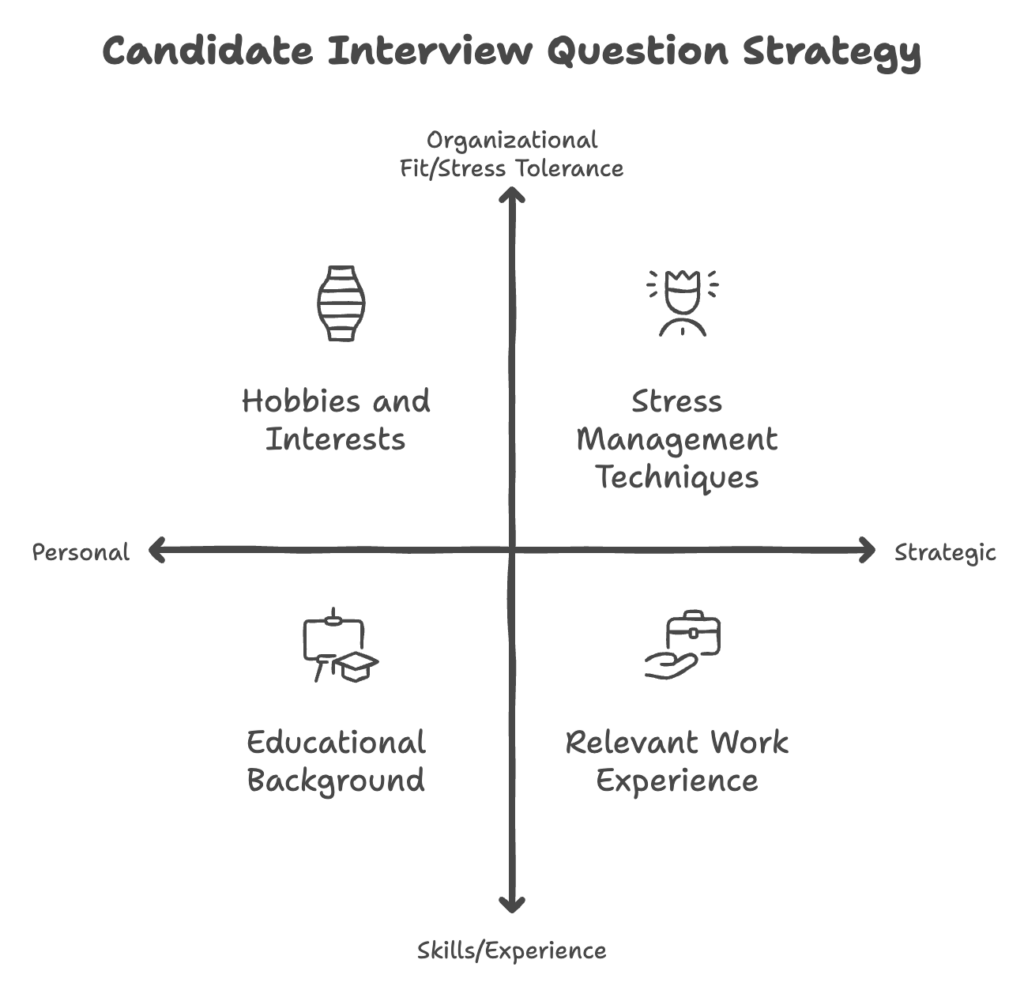
The strategic interview questions to ask candidates
Let’s categorize the interview questions into four categories: technical skills and education, behavioural skills, problem-solving skills, and cultural fit.
Strategic interview questions for technical skills
1) What accounting software or systems do you have experience with?
Familiarity with accounting software such as QuickBooks or Xero is inevitable in 2024, as these platforms help accountants save time on various financial tasks, including reporting and payroll management.
It’s rare to find an accountant without experience with accounting software.
This question is important because it reveals their software and technology skill level, not only if they’re familiar with specific software.
2) How do you minimize your risk of accounting error?
Candidates should know strategies to reduce the likelihood of errors. One simple way is to use accounting software. If they have a better answer than just accounting software, which might have it’s issues as well, very good.
Their response will give you an idea of how they commit to maintaining high standards of accuracy. Additionally, you get to see how innovative the accounting candidate is.
3) What criteria do you use to assess the reliability of the financial information you receive?
This question is a great way to understand how your candidate processes information. In an era when scams are nearly as common as usual transactions, an accountant’s critical thinking is vital.
It would be most efficient to ask your existing accountants or create a strategy yourself to know what to expect from the candidate and ask questions to ask for more details.
4) What methods have you used for estimating bad debt?
Get to know your candidate’s experience with credit risk management and understanding of financial forecasting. This will give you insight into their analytical skills and ability to make informed predictions about future financial performance.
It would be most efficient to ask your existing accountants or create a candidate sourcing strategy yourself to know what to expect from the candidate and ask questions to ask for more details.
Strategic interview questions for education
1) Please tell me about your experience in accounting and finance.
You can’t hire an accountant without learning about their bookkeeping qualifications and practical knowledge in the field. Their education and experience give an insight into their familiarity with accounting principles, financial reporting, and relevant software tools.
Candidates should discuss specific roles they have held, types of financial tasks they have managed, and any specialized areas of expertise, such as tax preparation or auditing.
2) What are the most common ways that fraud spreads in the accounting business?
Understanding how fraud can infiltrate accounting practices is crucial for any firm looking to safeguard its financial integrity.
Suppose your candidate is not familiar with fraud detection – bad news.
You can teach them yourself during work, but the hunch to know if they’re being scammed comes from experience.
3) What’s the latest accounting standard, and how does it impact a business?
The latest accounting standards are an integral part of accounting for any firm. Therefore, every accountant must be on the same page regarding the latest accounting standards. It also shows the commitment the candidate has for their occupation.
4) What is your experience with developing or monitoring business metrics?
This question evaluates a candidate’s ability to contribute to a company’s strategic goals through data-driven insights.
Their response will reveal their understanding of how metrics can inform business decisions and drive performance improvements. Additionally, it will show whether they know how to use data effectively to support management in making informed decisions.
Strategic interview questions for behavioural skills
1) Describe what role you usually play when working on a client with colleagues.
This question helps you assess the candidate’s teamwork and collaboration skills. Do they take the leadership role or stay in a more supportive position?
The response can indicate whether the candidate is flexible enough to adapt to different roles as needed, which is essential in an accounting firm where projects often require diverse skill sets.
2) What do you find hardest when working with a team?
This question aims to uncover potential challenges the candidate may face in a collaborative environment. It reveals whether they might struggle with communication, conflicts or differing work styles.
It also shows how they fit in the company.
3) Tell me about a difficult client you’ve had in the past.
This question assesses the candidate’s experience in managing client relationships and their ability to handle challenging situations.
Do they deny having a difficult client, or do they get too excited when talking badly about another person? How the candidate treats other people impacts their behaviour in the work environment.
4) What’s your way to find peace on a hectic day?
Hectic days are a part of accountants’ daily lives since the busy season lasts for months. Of course, ensuring the worker is satisfied and not stressed out is a part of the management’s job, but the candidate must also put effort into themselves.
This question aims to understand how the candidate manages stress and maintains a work-life balance. Their answer gives insight into their values regarding work-life balance, which is increasingly important in today’s workplace.
Strategic interview questions for problem-solving skills
1) Tell me about a situation where you solved a mistake you made.
As we all know, mistakes are human. So is making mistakes at your job. If a candidate isn’t willing to admit to any errors or can’t remember any, it’s hard to conclude how they’ll handle a stressful situation.
This question helps gauge their ability to take ownership of their actions. It also helps understand whether they fit with the team based on how they manage their problems.
2) What is the most significant problem you have solved for a client?
This question lets you know which clients you can assign to this accountant.
The question also reveals whether the accountant talks about a client who is hard to communicate with and, therefore, is a significant problem. Or do they think of a financial issue?
Both are the right answers and show you what are the candidate’s strengths.
It also allows them to illustrate their understanding of client needs, strategic thinking, and how they apply their accounting knowledge to deliver solutions. This insight into their client management skills is essential for evaluating how well they might contribute to your firm’s reputation and client satisfaction.
3) How do you stay up to date with changes in regulations?
Tax laws and financial regulations are infamous for their dynamic nature. Accounting is not just about crunching numbers or giving financial advice but also about researching and staying on top of the news.
A candidate who prioritizes staying updated is persistent and understands the importance of compliance in maintaining ethical standards and providing accurate financial advice.
4) What are the first three steps you would take when discovering a critical error in a report just before a deadline?
This is a tough one. The candidate has to show how they handle a crisis now. Their response shows how they assess the severity of the error, communicate with team members or clients if necessary, and implement corrective measures while adhering to deadlines.
Strategic interview questions for cultural fit
1) Describe a good day at work.
This question helps you understand what a candidate values in their work environment. Get insights into their motivations, work preferences, and the types of tasks or interactions that energize them so you can see how they fit in with their new coworkers.
The question can also give you an idea of whether the person is a glass-half-empty or full person.
2) Why did this position appeal to you?
Get to know their motivations for applying. A thoughtful response will indicate that the candidate has researched your firm and the specific position, showing that they are dedicated to the task they have been given.
The accounting candidates’ answers can also provide insight into how they see themselves fitting into your team and how their career goals align with the position, which is crucial for long-term retention.
3) What would you do differently if you could start your career over again?
This question follows up on the candidate’s experience in the accounting industry. It also shows that the accountant can learn from experience and know when they’ve made mistakes.
Additionally, it may highlight areas where they feel they could have developed skills more effectively, providing context for gaps in their experience or qualifications.
4) Give me an example of how you would explain a complex accounting process to someone in another team.
You’ve truly mastered the knowledge when you can explain a concept to a five-year-old. This is the same for colleagues from other teams who are interested in or need to know about accounting.
An excellent answer to this question shows that they have made everything super clear to themselves about accounting. Their great communication skills might also make them good colleagues.
How do strategic interview questions to ask candidates help you succeed?
In conclusion, hiring the right accountant is a critical decision that can significantly impact your firm’s financial health and operational efficiency. You must know the right strategic interview questions to ask candidates to find the best. Assess technical skills, behavioural competencies, problem-solving abilities, and cultural fit; you can gain valuable insights into a candidate’s qualifications and suitability for the role.





